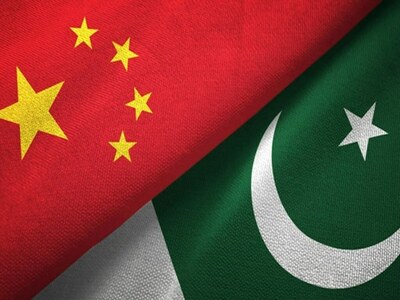China and Pakistan Strengthen Economic Ties Amid Global Challenges
A recent seminar highlighted the deepening strategic and economic alliance between China and Pakistan. Speakers emphasized the significance of China’s advancements, enhanced regional connectivity, and the pursuit of mutual prosperity for both nations.
Concerns were raised about the potential adverse effects of newly imposed trade tariffs by the United States. The consensus was that the ongoing trade tensions between the US and China could negatively impact both economies and reduce the global demand for goods and services.
Strengthening Bilateral Ties
Yang Yundong, the Chinese Consul General in Karachi, recalled President Xi Jinping’s landmark visit to Pakistan in April 2015, which inaugurated a new era of friendship and cooperation, particularly through the China-Pakistan Economic Corridor (CPEC).
The seminar, focusing on Chinese Modernization and China-Pakistan Relations, was jointly organized by the Pakistan Council on Foreign Relations (PCFR) and the Chinese Consulate in Karachi.
Yundong noted China’s commitment to promoting its modernization through high-quality development, working closely with Pakistan towards shared prosperity and mutual growth.
He stated that the relationship between China and Pakistan is a top priority in China’s diplomatic efforts, serving as a model for international relations. Both nations have consistently supported each other through synchronized strategic cooperation, solidifying their positions as reliable partners. CPEC has evolved from a conceptual framework into a tangible reality, expanding and deepening cooperation across various sectors.
The Consul General affirmed China’s strong support for Pakistan’s counter-terrorism efforts and its commitment to maintaining social stability. He expressed confidence that despite global challenges, the aligned aspirations and shared goals of both countries would facilitate overcoming obstacles and achieving progress.
He reaffirmed the established strategic ties between China and Pakistan, characterized by substantial volume, diverse dimensions, and sustainable outcomes. The seminar was described as an essential strategic guide for future cooperation.
Yundong highlighted the alignment of China’s modernization vision with the strategic cooperation between the two countries, paving the way for a brighter future. Understanding China’s modernization requires acknowledging its historical foundations. Since 1949, the Communist Party of China has led the nation in completing the socialist revolution and creating an independent industrial and economic system.
He recounted China’s economic transformation and social advancements since the introduction of reforms, marking a historic achievement in human development.
Chinese modernization emphasizes comprehensive, coordinated, and sustainable progress, integrating material, political, cultural, ethical, social, and ecological aspects. He underscored that it is a socialist modernization led by the CPC with unique Chinese characteristics, including modernization for a large population, common prosperity, material and ethical advancement, harmony between humanity and nature, and peaceful development.
China actively promotes peaceful development and contributes to global peace and progress through its own growth. Despite facing a complex global landscape and domestic challenges, China has made significant strides in high-quality development.
He criticized the United States for its containment policies and imposition of tariffs on China, asserting China’s commitment to peaceful development and cooperation with neighboring countries.
Pakistan’s Perspective
Dr. Shamshad Akhtar, former Governor of the State Bank of Pakistan, highlighted the shared values that bring Pakistan and China closer. She noted China’s vision for lasting global peace and its commitment to collective progress through partnerships with other nations.
In a divided world, China promotes equality and mutual respect, fostering inclusive international cooperation and supporting the 17 sustainable development goals with generous funding.
Akhtar emphasized the Belt and Road Initiative as a landmark project that enhances regional connectivity and cooperation, engaging 149 countries and 30 international organizations.
CPEC, valued at 60 billion dollars, focuses on infrastructure projects that provide bilateral connectivity, and the BRI is projected to boost global GDP significantly by 2040.
CPEC has significantly contributed to infrastructure, energy, and trade development in Pakistan. Regular high-level engagements and agreements have reinforced the partnership, promoting collaboration in regional security, trade, and economic advancement.
A China-Pakistan Free Trade Agreement has strengthened trade relations, with bilateral trade reaching 23.1 billion dollars in 2024. By 2023, China’s total investment stocks reached 6.3 billion dollars, particularly since the launch of CPEC, with Chinese companies involved in energy, transport, and oil exploration.
Other speakers at the seminar included Irfan Soomro, Hasan Habib, and Zubair Tufail.



Comments (0)
No comments yet. Be the first to comment!
Leave a Comment